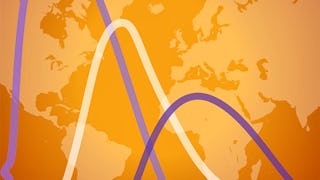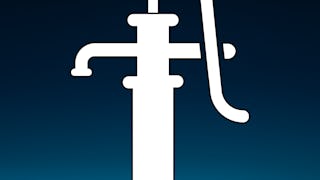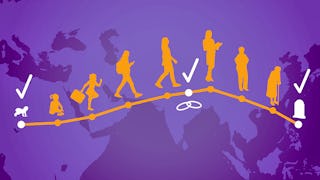In this course, you will learn about traditional and emerging techniques in population-level data collection that can be used to strengthen public health programs and policies. Experts from around the world will define and explain key concepts in the design and implementation of population-based surveys, focusing on the use of emerging survey techniques such as mobile phone and web-based surveys, health services data and health information systems, and population-based health registries. You will learn about how these data can be used to inform population-level decision-making, and the application of a gender and equity lens to ensure they are tracking and responsive to the needs of populations. Our overarching goals for the course are to support the collection of population-level health data, track trends, plan interventions, and enhance the monitoring of major risk factors for early death - especially from non-communicable diseases.



What you'll learn
Compare and contrast the strengths and limitations of traditional survey methods and emerging survey methods across contexts
Discuss the role, attributes, and challenges of health information systems in understanding population health patterns and for decision-making
Describe components, development, and management of population-based paper and digital registries
Use gender transformative approaches through appropriate integration of gender measures in population-based surveys
Skills you'll gain
- Surveys
- Electronic Medical Record System
- Community Health
- Health Equity
- Health Policy
- Health Informatics
- Epidemiology
- Public Health and Disease Prevention
- Data Quality
- Public Health
- Health Disparities
- Health Information Management
- Data Collection
- Health Care
- Health Promotion
- Research Methodologies
- Diversity Awareness
- Chronic Diseases
Details to know

Add to your LinkedIn profile
18 assignments
See how employees at top companies are mastering in-demand skills

There are 4 modules in this course
What's included
8 videos2 readings4 assignments2 discussion prompts
What's included
14 videos7 assignments2 discussion prompts
What's included
5 videos4 assignments2 discussion prompts
What's included
4 videos2 readings3 assignments1 discussion prompt
Offered by
Explore more from Public Health
 Status: Preview
Status: PreviewJohns Hopkins University
 Status: Preview
Status: PreviewUniversiteit Leiden
 Status: Preview
Status: PreviewJohns Hopkins University
 Status: Free Trial
Status: Free TrialImperial College London
Why people choose Coursera for their career





Open new doors with Coursera Plus
Unlimited access to 10,000+ world-class courses, hands-on projects, and job-ready certificate programs - all included in your subscription
Advance your career with an online degree
Earn a degree from world-class universities - 100% online
Join over 3,400 global companies that choose Coursera for Business
Upskill your employees to excel in the digital economy
Frequently asked questions
To access the course materials, assignments and to earn a Certificate, you will need to purchase the Certificate experience when you enroll in a course. You can try a Free Trial instead, or apply for Financial Aid. The course may offer 'Full Course, No Certificate' instead. This option lets you see all course materials, submit required assessments, and get a final grade. This also means that you will not be able to purchase a Certificate experience.
When you purchase a Certificate you get access to all course materials, including graded assignments. Upon completing the course, your electronic Certificate will be added to your Accomplishments page - from there, you can print your Certificate or add it to your LinkedIn profile.
Yes. In select learning programs, you can apply for financial aid or a scholarship if you can’t afford the enrollment fee. If fin aid or scholarship is available for your learning program selection, you’ll find a link to apply on the description page.
More questions
Financial aid available,





